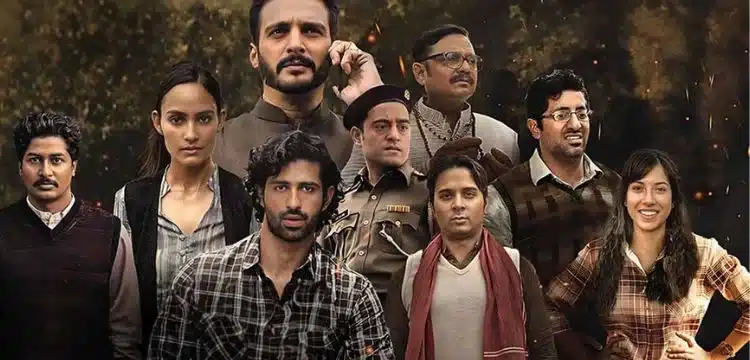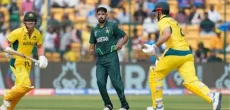[vc_row][vc_column][vc_column_text dp_text_size=”size-4″]In Choona, we follow the story of a once-powerful gangster who has now ventured into politics and harbors a host of superstitions and borderline delusions. As he ascends to the top, he makes enemies who eventually unite to execute a game-changing heist within his kingdom.
Script Analysis:
Projects set in the heartland of India in the digital realm often walk a fine line between delivering something unique and falling into the trap of clichés. Gangster dramas with ruthless henchmen have been explored extensively, and it takes something extraordinary to stand out. Pushpendra Nath Misra’s Choona, meaning “conning” someone, understands that it follows a well-trodden path. Still, it manages to introduce a fresh perspective. Misra, along with Srishti Dubey and Mugdhaa Ranade, crafts a narrative about the underprivileged rising against their oppressor in a way that doesn’t involve bloodshed but forces the antagonist to confront his wrongdoings. Misra presents this world dramatically, making the seemingly impossible storyline believable, and the creators are cognizant of its borderline audacity.
Read more : Disney produces shows and movies for its rivals.
Beneath a clever layer of humor, Choona delves into the lives of those who have suffered at the hands of the powerful. It highlights the irony that the powerful individuals are often not particularly intelligent but act as if they are gods. This theme runs throughout the show and is used effectively.
The classic story of two friends taking different paths in life – one becoming an honest cop and the other a local gangster – is a well-worn trope. However, Choona breathes life into this narrative by adding complexity and emotion. The actors in these roles infuse them with an exciting energy, and the writing supports them effectively. Misra attempts to provide each character with a well-deserved arc and redemption, leaving no loose ends.
Where the series falters is in its attempt to weave mythology and astrology into the plot. While it works for the most part, there are instances where it becomes overly excessive. Although one of the main characters believes in these elements, their involvement is introduced quite late, making the audience feel that they’ve already seen enough. Additionally, Choona occasionally treads well-worn paths, contributing to a sense of repetitiveness.
Star Performance:
Jimmy Shergill delivers a convincing portrayal of his delusional character, Shukla, and his performance feels effortless. Aashim Gulati impresses as Ansari, displaying his talent despite moments of vanity. Monika Panwar’s character stands out, providing depth and substance to the narrative. Chandan Roy entertains without needing to speak much, showcasing his acting prowess. Gyanendra Tripathi delivers a fine performance, while Vikram Kochhar handles his role with ease. Namit Das shines in the second half, demonstrating why he has remained relevant over the years. Niharika Lyra Dutt’s talent deserved more screen time.
Direction & Music:
Pushpendra Nath Misra’s direction effectively balances the dramatic elements of the script, preventing the show from descending into pure comedy. He skillfully manages the chaos, maintaining the audience’s engagement over the eight episodes. The 5th and 6th episodes stumble slightly by becoming overly explanatory, leaving little room for the audience’s interpretation. The frequent voiceovers by Arshad Warsi seem excessive, making the script longer than all the dialogues combined. The set design, particularly Shukla’s temple-like space with a bathtub, adds to the dramatic atmosphere. However, the music, while serviceable, doesn’t stand out.
Final Thoughts:
Choona is an intriguing show that offers a fresh perspective on a familiar genre, and it’s now available for streaming on Netflix. With humor, intrigue, and captivating performances, it’s worth a watch.[/vc_column_text][/vc_column][/vc_row]











